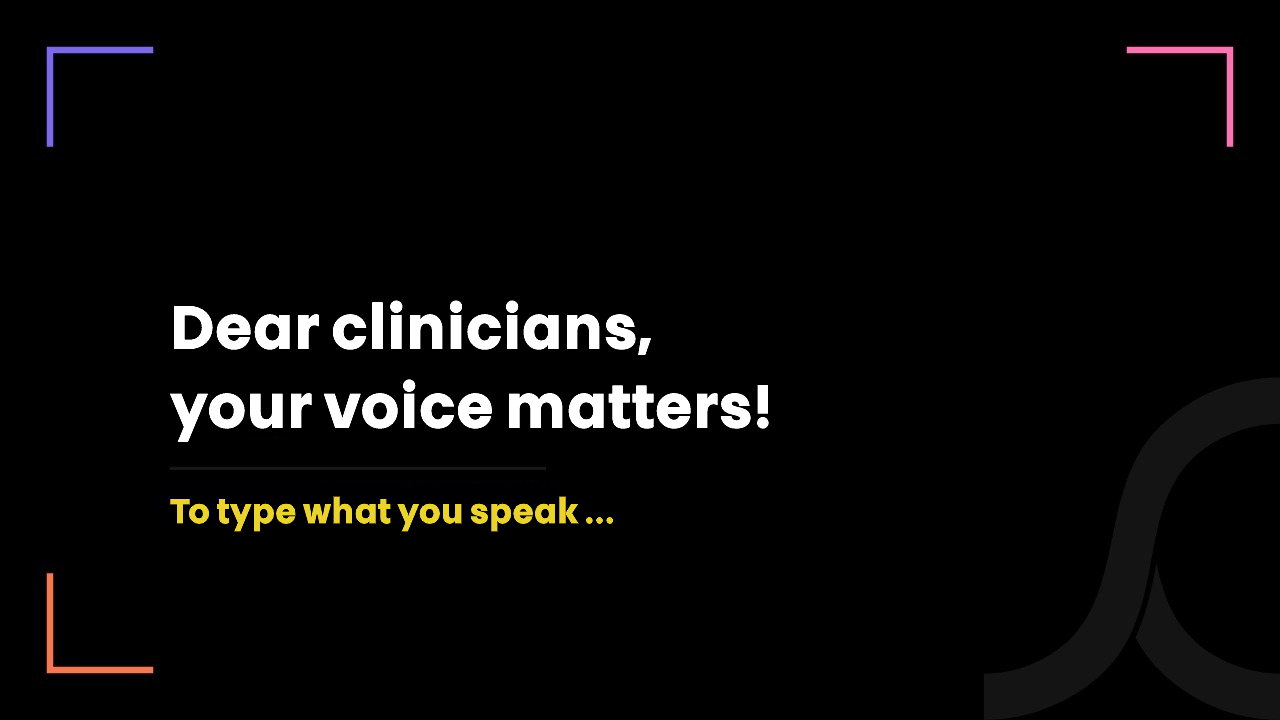Hey Siri, “How This Siri for Healthcare Tool Raised $55 Million”

3 years ago
‘Hey Siri, what’s the weather outside?’, that's what kids say.
‘Hey Siri, what’s the clinical history of the patient I am having the next appointment with!’, that’s what doctors say!
Don’t get confused here.
We can’t use Siri for the voice-based clinical assistant as Apple would never allow us to customize Siri for our purpose.
Here Siri is an inspiration for us. You can build a Siri-like voice-enabled platform specifically for healthcare only.
In case you are wondering whether the idea of Siri for healthcare works, well, it has already been working for Suki which is a US-based voice-enabled healthcare digital platform.
And the reason we are mentioning Suki is its most recent successful funding round of $55 million!
What is Suki and how it raised $55 million for its healthcare-focused voice technology?
Suki is the voice-based clinical assistant tool.
It makes voice-to-text in healthcare seamless and enables doctors to document every aspect of the care cycle and clinical note-taking while they speak in their natural language.
Suki works like Siri and Amazon Alexa in most cases. Doctors can ask Suki to show their upcoming appointments, create clinical notes, insert patients’ vitals, update notes etc.
Freeing doctors from administrative tasks which doctors need to do manually by typing every detail, Suki saves crucial clinical time for doctors while not compromising accuracy.
The best part of Suki is it can be integrated with EHR. With this seamless integration, doctors can fetch clinical data from EHR by giving voice commands to Suki or add any new data to EHR by simply speaking what they want to note down in EHR.
To understand and process the natural language of physicians, Suki leverages AI, machine learning and natural language processing technologies.
Its tech stack is so advanced that it is able to understand very complex clinical terms used by physicians on the go.
What Suki delivers to clinicians is rare but valuable. The use of voice technology in healthcare is still in its early stage but we cannot deny its endless potential.
Otherwise, Microsoft and Amazon would never have invested billions of dollars in voice-to-text technology specifically for healthcare!
A day after Suki’s new funding round, Amazon launched a voice assistant service for seniors
Alexa Together is Amazon’s newly launched subscription service targeting seniors.
The service uses Amazon’s range of voice assistant devices to let seniors seek assistance 24/7 with extra features like fall detection.
Fall detection feature alerts the caregiver and family member of a senior when a senior falls into a range of devices.
Family members also receive notifications when seniors use the Amazon device for the first time in a day or seek emergency assistance with voice commands.
The most unique and useful feature Amazon has rolled out with its new service is Remote Assistant.
Using it, family members of seniors can set reminders, create shopping lists, play music and read news for seniors even remotely.
Amazon had already customized its voice technology for the healthcare industry.
In fact, several healthcare entities across the USA are leveraging Alexa for helping seniors and patients go through their hard times in hospitals and nursing homes.
Different use cases of voice technology in healthcare
If you are planning to build Siri for healthcare, you must have basic knowledge of where there is a gap in healthcare which you can fill with your voice-enabled clinical assistant tool.
- Voice-typing of clinical documents including medical notes
- Voice-typing referral notes
- Collecting clinical data from multiple sources
- Voice commands for seamless remote patient monitoring
- For entertainment purposes of patients and seniors
- Helping patients and seniors with daily life
- Seeking urgent care within seconds
- Getting up-to-date info of patients’ condition without fetching through software
- Auto reminders for patients and seniors
- Helping clinicians plan their day and set reminders on the go
How speech-to-text technology helps clinicians?
Every time when you visit a physician, you notice he seems busy noting down everything you say into his system.
You often feel like having a discussion with a data entry guy. But putting clinical data into the system is protocol. He can’t skip it.
What he can do to not look like a data entry guy is utilize speech-to-text technology which types everything that he speaks into his system as fast as he speaks.
Outcome? Well, he now has the flexibility to engage more in patient conversation and less in data entry.
This engagement not only enhances the patient outcomes but saves his time, avoids errors and makes patients feel good.
Suki is doing the exact same thing. It gives clinicians the privilege to say what they want to type and see the system typing things by itself.
Magic does happen when you integrate speech-to-text technology or platform with EMR/EHR as it reduces almost 80% of clinicians’ tasks on their EMR/EHR.
Why did we invest our 5 hours and write the blog sharing idea of Siri for healthcare?
We're an Ontario-based team. We’re gifted with knowledge that can transfer healthcare forever. Yes, we know every little aspect of healthcare IT.
We have a vision to not grow old experiencing the same ancient healthcare we grew up experiencing as kids.
To fuel our vision, we use our expertise in healthcare technologies, design, development, compliance and QA.
We’re standing strong and tall in between your idea of implementing voice technology in healthcare and the complexities of voice technology that are powerful enough to kill your idea.
The irony here is, we alone cannot make our vision possible. And you alone cannot win over the powerful complexities of voice technology.
So the best hope we have is each other!
(In essence, we wrote this blog to find someone who has the same guts and vision as ours!)
